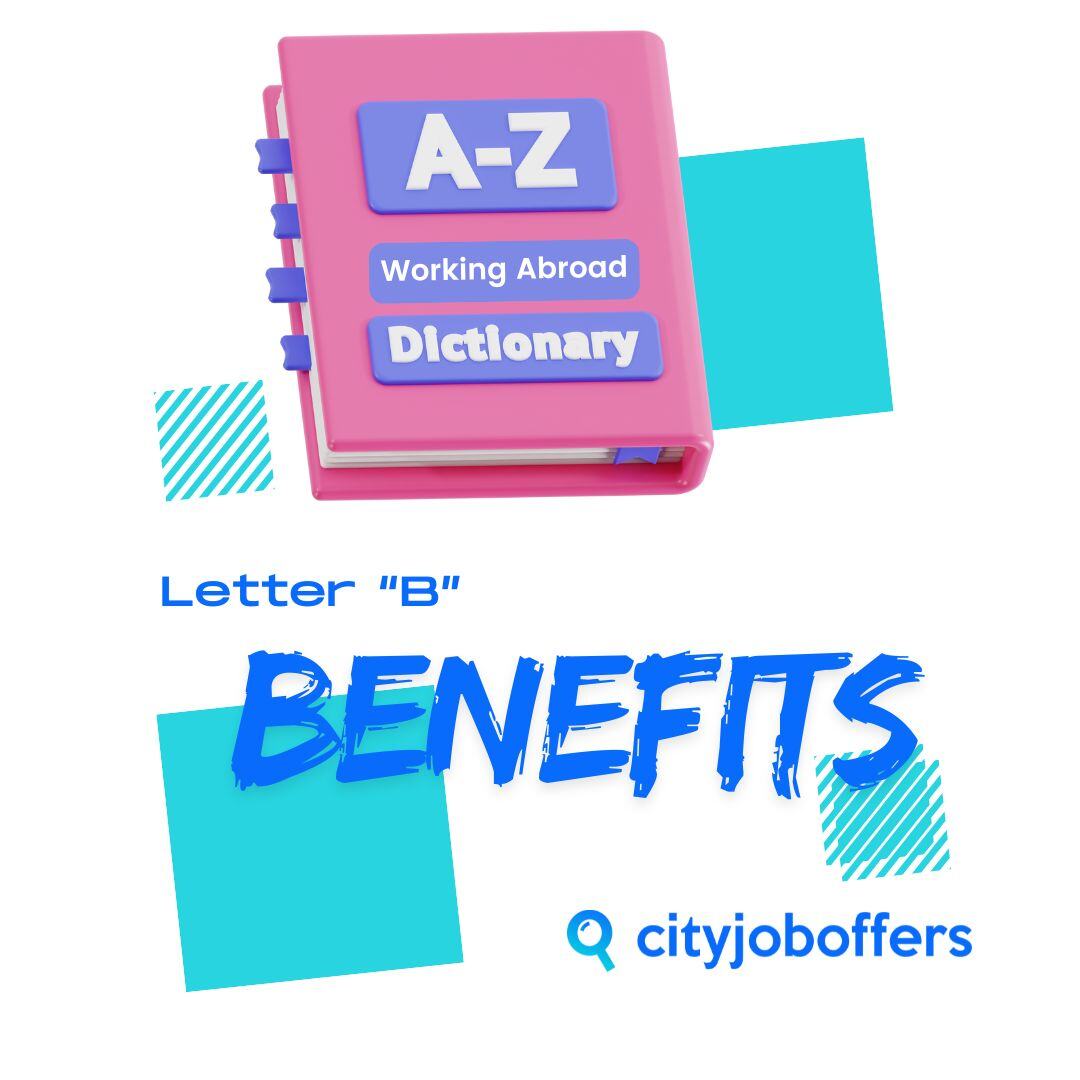
Benefits
Pronunciation: /ˈbenɪfɪts/
What does it mean?
“Benefits” refer to the additional perks or advantages that come with a job, beyond your regular salary. These can vary greatly depending on the country, company, and industry. Common examples include health insurance, paid vacation, housing allowances, relocation packages, or even professional development opportunities.
Why is it important to understand this concept?
- Maximizing Value: Understanding the benefits offered by an employer helps you calculate the full value of your job offer and compare opportunities effectively.
- Negotiation Power: Benefits can often be negotiated, especially for jobs abroad, where employers may offer support for relocation or integration.
- Cultural Differences: Employee benefits vary widely across countries. For example, some nations offer extensive parental leave, while others emphasize pension contributions or bonuses.
City Job Offers Tip:
When evaluating a job offer abroad, always ask for a detailed breakdown of the benefits. Consider things like visa sponsorship, relocation assistance, and local perks like transportation or meal vouchers. Sometimes, the right benefits package can make or break your decision to work in another country.
Final Thoughts:
Remember, benefits go beyond money—they’re about ensuring your well-being and quality of life while working abroad. Evaluate them carefully and don’t hesitate to ask for clarity or negotiate!


.png?width=352&name=BLOG%20VERSION%20(2).png)